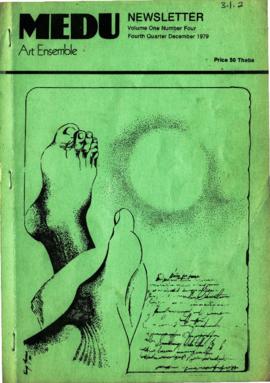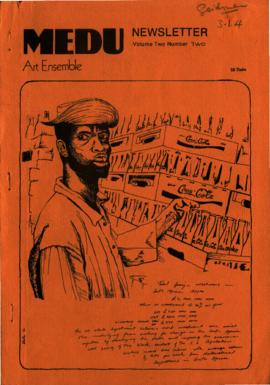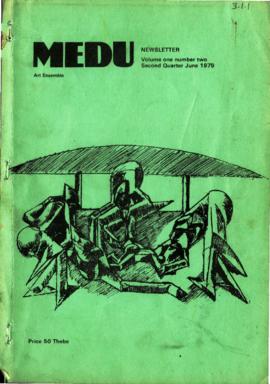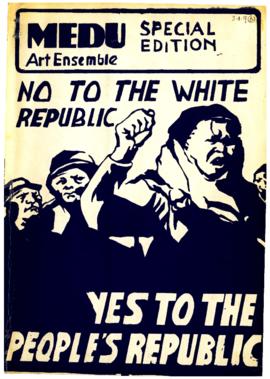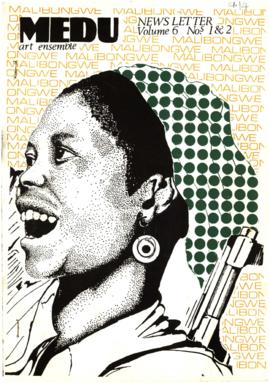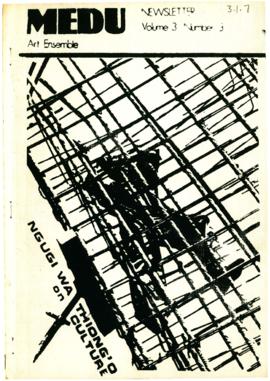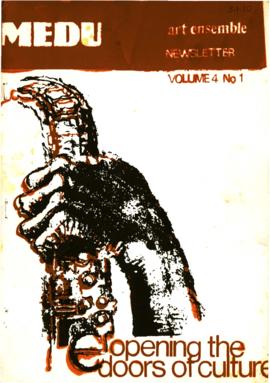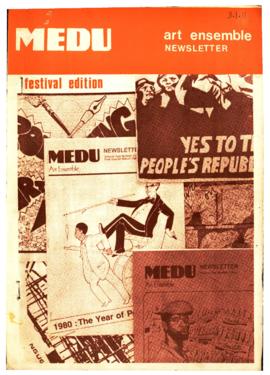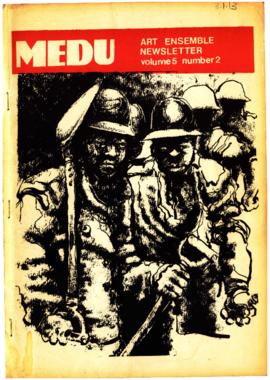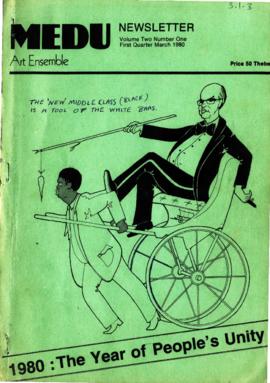Newsletter 1979, December, Vol. 1, No. 4
- ZA MEDU MEDU-3-3.1-3.1.2
- Subseries
- December 1979
Part of 3-MEDU NEWSLETTERS
Newsletter has interview section of Mosa Jonas Gwangwa who is a composer, musician and member of Medu Art Ensemble. He is interviewed by Medu project co-ordinator Mongane Serote. Jonas Gwangwa shares his background from his early childhood when his parents arrived at Orlando in 1931. Furthermore, he talks about his musical background that is influenced by his musical family.
Medu Art Ensemble

